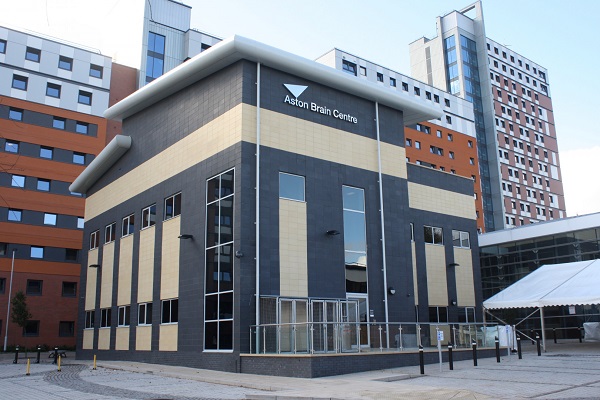Aston University: Aston University celebrates official launch of its civic university agreement to strengthen role in local community
Aston University celebrated the official launch of its civic agreement with strategic partners from the city and region at an event hosted by Aston Villa Football Club on Wednesday 8 June.
Over 80 people attended to witness the official signing of the agreement by Aston University, Aston University Students’ Union, Aston Villa Football Club, Birmingham City Council, Birmingham Community Healthcare NHS Trust, Greater Birmingham Chambers of Commerce, Greater Birmingham and Solihull Local Enterprise Partnership and the West Midlands Combined Authority.
Speakers at the event included West Midlands Mayor Andy Street, Saidul Haque Saeed, lead organiser at Citizens UK Birmingham Chapter and Cllr Brigid Jones, deputy leader of Birmingham City Council. The Lord Mayor of Birmingham was also in attendance, as well as representatives from local business, education and the third sector.
The civic agreement was originally developed in March 2021, but the official signing and celebration ceremony had to be postponed due to the pandemic.
Aston University’s agreement sets out its commitment to wide-ranging collaborations on a range of themes centred around the recovery of the city and its citizens after COVID-19 through initiatives on improving health and wellbeing, reducing inequalities, support for businesses, environment and sustainability, crime and justice, and education and employment.
The event also showcased six of the projects involved in the agreement:
the Villa Vision project that raises awareness on the importance of eye health with children
Aston University’s Centre for Research in Ethnic Minority Entrepreneurship (CREME) which provides business support for ethnic minority entrepreneurs
Aston Institute for Forensic Linguistics which improves the delivery of justice through analysing the use of language, particularly in areas of law prone to creating social injustices and inequalities
The Energy and Bioproducts Institute (EBRI) that supports small to medium enterprises (SMEs) to convert waste into products
Aston Centre for Growth which helps SMEs to grow
the Birmingham Anchor Network, an organisation that supports local employment and procurement.
The concept of a civic university agreement was created after a thorough analysis by the Civic University Commission on the various civic projects universities around the country were delivering.
The analysis found that, although many universities were delivering projects of undoubtable civic benefit, it was much rarer to see evidence of civic strategy – backed by rigorous analysis of local needs and opportunities, ambitious objectives and a clearly articulated plan that made place-based civic engagement a core part of the university’s mission.
Saskia Loer Hansen, Interim Vice-Chancellor of Aston University, said:
“The civic university agreement demonstrates that Aston University is putting citizens at the heart of the region as we work together to recover from COVID-19.
“Our civic agreement demonstrates our commitment to working with our city and regional partners to bring about positive change for the people who live or work in or who visit Birmingham. As a civic university, our mission is to work with local citizens and regional bodies to make a transformational difference on issues that matter to them.
“Aston University strives to meet the needs of its beneficiaries, and our civic agreement sets out our commitment to wide-ranging collaborations on and beyond our campus that allow the open exchange of knowledge and insight with citizens.”
Saidul Haque Saeed, lead organiser for Citizens UK’s Birmingham Chapter, said:
“Five years ago, Aston University became a principal partner of Citizens UK.
“This has been a true catalyst for other universities to follow suit and work with us across the UK.”
Cllr Brigid Jones, deputy leader of Birmingham City Council, added:
“Our universities are the beating heart of the UK’s youngest city, and Aston University is a cornerstone of future economic growth, allowing young people to fulfil their potential.”

